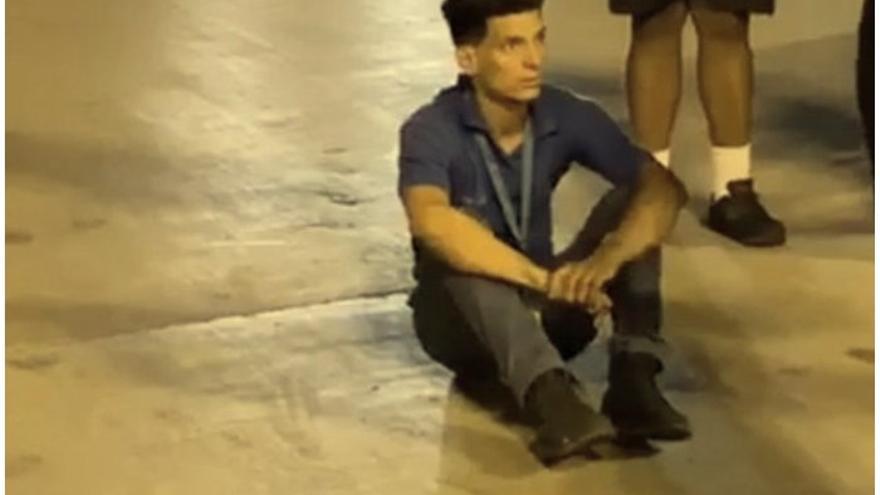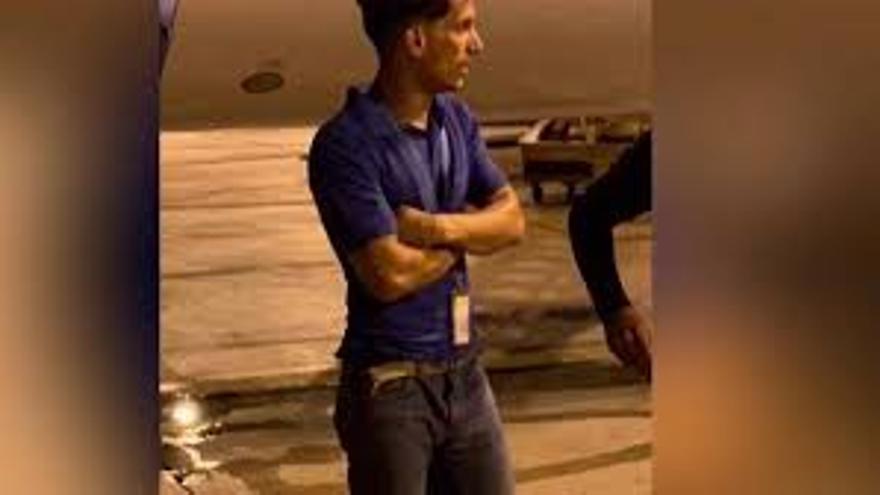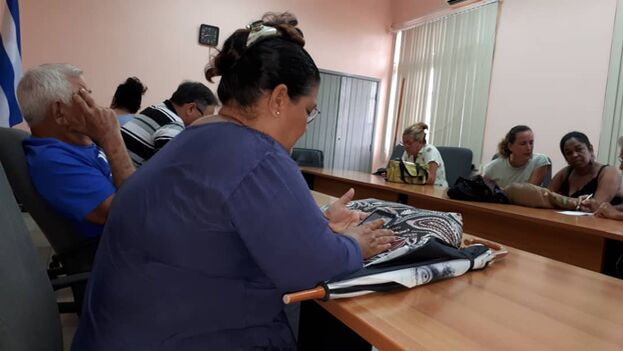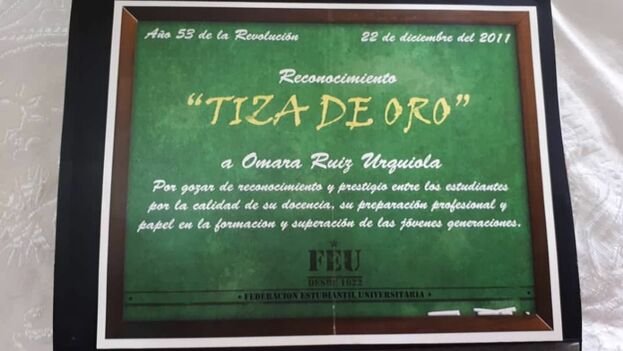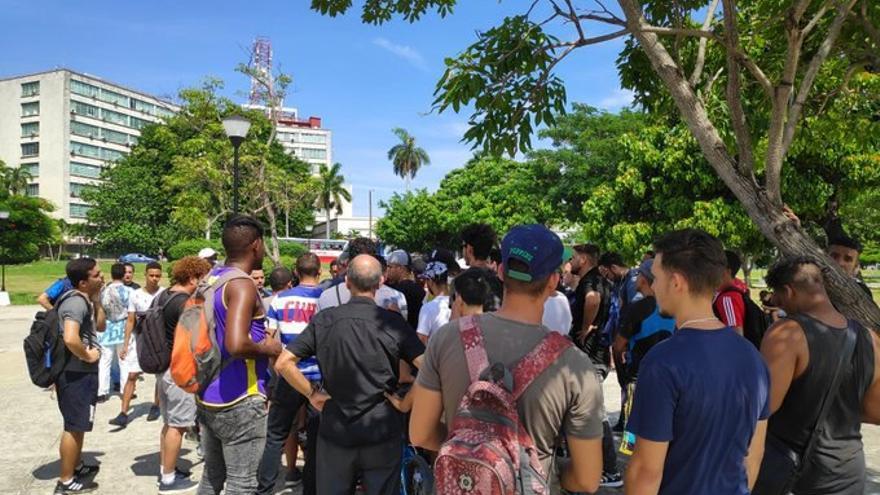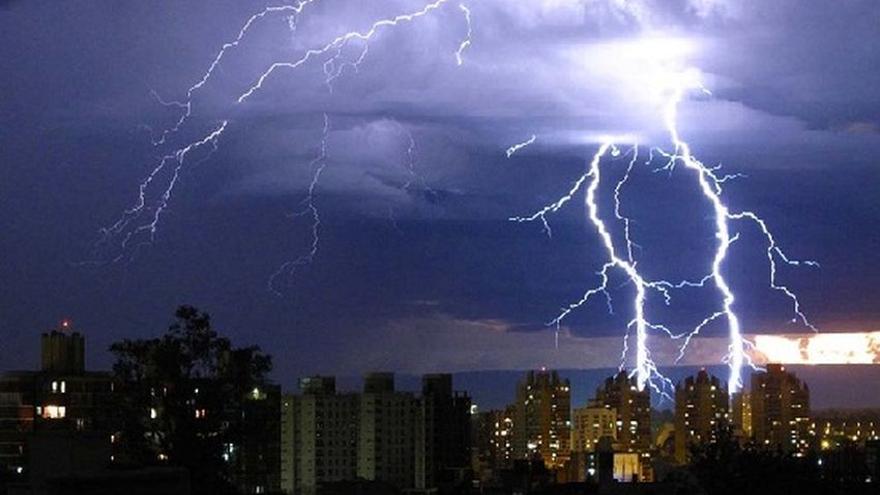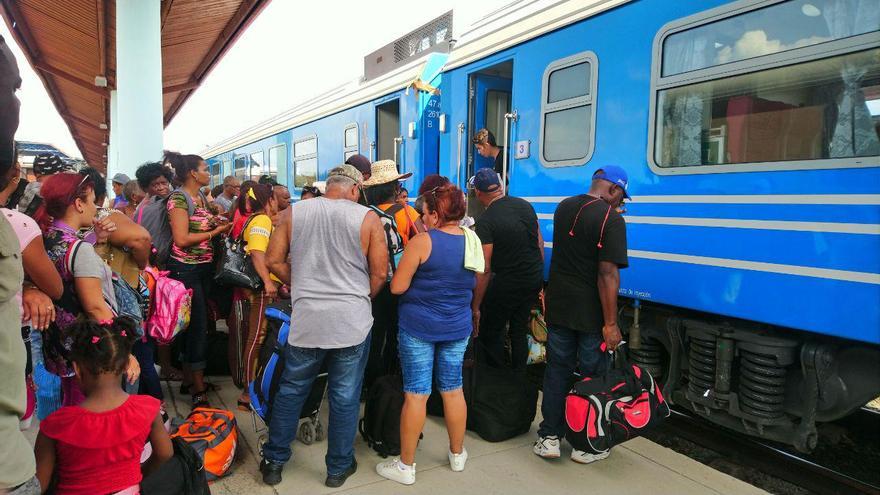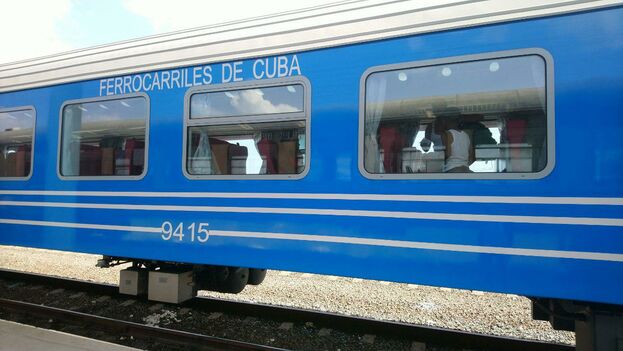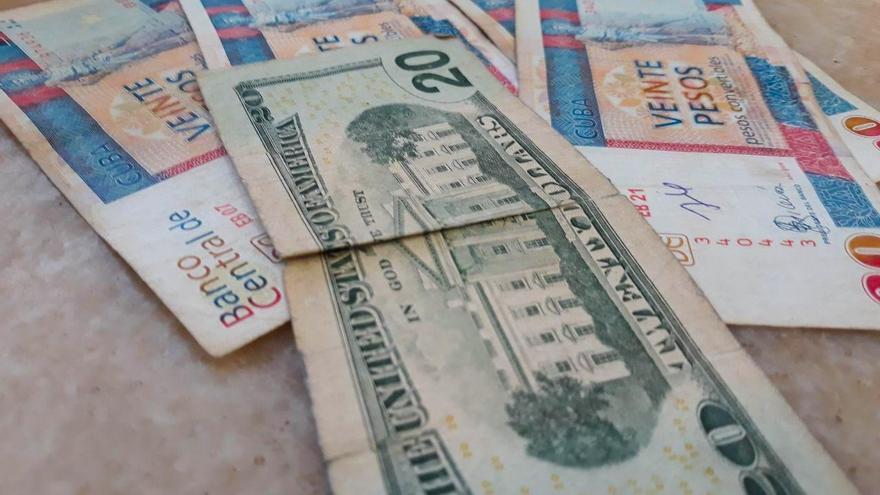
![]() 14ymedio, Havana, August 23, 2019 — The dollar’s value rose last week on the unofficial Cuban exchange market. The U.S. currency went from 0.95 or 0.96 to 1.02 or even 1.05 Cuban convertible pesos (CUP) on the island’s informal currency market according to El Toque. The increase occurred shortly after the government announced its decision to raise salaries and impose price controls on some retail products.
14ymedio, Havana, August 23, 2019 — The dollar’s value rose last week on the unofficial Cuban exchange market. The U.S. currency went from 0.95 or 0.96 to 1.02 or even 1.05 Cuban convertible pesos (CUP) on the island’s informal currency market according to El Toque. The increase occurred shortly after the government announced its decision to raise salaries and impose price controls on some retail products.
A worker at José Martí International Airport in Havana tried to convince several foreigners to sell her their dollars. “I exchange one to one,” she said in a low voice while trying to avoid security cameras in the terminal. Her proposed purchase price was slightly lower than the going rate on the streets.
Despite the risk of being scammed, selling their dollars informally can be very attractive to tourists. At state-run currency exchanges, which are the only ones allowed to operate in the country, the effective exchange rate is 1 dollar to 0.87 convertible peso due to a 10% tariff and a 3% commission on the value of the US currency. continue reading
Experts say that there are several reasons for the dollar’s rise in value, among them the fear of a sudden unification of the two local currencies, the CUP (Cuban peso) and the CUC. Stashing away “greens,” as locals commonly refer to American dollar bills, is an option that many Cuban travelers, business owners are people who want to preserve their savings are choosing.
Another factor is the decline of tourists visiting the island, especially those from the United States. The fall has led authorities to revise the expected number of visitors to the country in 2019 downward. The new estimate is 4.3 million rather than the 5.1 million that had been initially projected. This translates into a decrease in foreign exchange earnings for both the state and for private businesses.
Linet, a resident of San Jose de las Lajas in Mayabeque, told 14ymedio that in her province the exchange rate is 1.03 CUC to the dollar but adds that “it’s getting harder to manage that every day.” She adds, “Getting it for 0.98 CUC is very difficult” and, even if she does, it is not in the amounts she needs. She often travels to Panama to buy items such as electronics, clothing, cell phones and air conditioners.
It is common to find online ads for homes and vehicles in which the seller asks that the transaction be executed in dollars. “I have a four-bedroom house in La Lisa and need to receive 30,000 USD or, alternatively, for that amount to be transferred to a relative in Miami,” reads one of many ads that stipulate payment in foreign currency.
The economist Pedro Monreal describes the dollar as “an animal that is very difficult to tame” because it has been the most tightly controlled “consumer product” for a long time. But, he adds, “It continues to operate in illegal markets, which are very dynamic.”
“It’s different than sweet potatoes or beer. It’s the scarcest commodity in the economy.”
The USD is an animal that is very difficult to tame. It has been the most tightly controlled “consumer product” for a long time. But it continues to operate in illegal markets, which are very dynamic. It’s different than sweet potatoes or beer. It’s the scarcest commodity in the economy.
— Pedro Monreal (@pmmonreal) August 22, 2019
Pavel Vidal, an economist and former Central Bank of Cuba employee, recently wrote a column for the Cuban-American Journal On Cuba in which he warned of the problems that a salary increase would bring on the island.
“We learned the lesson in the 1990s,” wrote Vidal, explaining the difficult years of economic crisis resulting from the end of Soviet subsidies. He states that at the time the Ministry of Economy and Planning, the Central Bank, the Ministry of Finance and Prices, and the Ministry of Foreign Trade set up working groups to prevent a devaluation of the peso and a loss of confidence in the Cuban currency. Despite inflation and deep budget cuts, the island managed to survive the crisis. Now, however, these groups either no longer exist or are being ignored.
“The arguments, explanations and actions taken by Cuban government officials this year are flimsy compared to the logic of the working groups which for years maintained of the stability of the Cuban peso and led to the de-dollarization of the economy at the beginning of this century,” he added.
For Guillermina, an elderly resident of Cienfuegos who has a son in Miami, the dollars are “a godsend.”
“My son was here a month ago and gave me 2,000 dollars because he is scared about what’s happening with Trump and worries he won’t be able to send remittances. He warned me not to exchange the money for CUCs because, if the economy collapses, I will lose everything,” she said via telephone.
Guillermina still remembers when Fidel Castro ordered the mandatory exchange of dollar bills in 1961 and fears something similar could happen again. “My uncle lost all his savings back then. It was a Friday. He always cursed Fidel for that,” she added.
In a surprise decision, Castro announced that the island’s currency and bank accounts over 10,000 pesos were no longer valid, even if their account holders had more money than that in them. It was a move designed to strip Castro’s opponents of resources, but for many years it led to a fear that something similar could happen, says Guillermina.
In recent months there have been growing rumors of a currency unification that would leave only the CUP in circulation. Currently, it is the currency in which salaries are paid and in which rationed items as well as water, electricity, gas and other public services are priced.
__________________________________
The 14ymedio team is committed to serious journalism that reflects the reality of deep Cuba. Thank you for joining us on this long road. We invite you to continue supporting us, but this time by becoming a member of 14ymedio. Together we can continue to transform journalism in Cuba.


